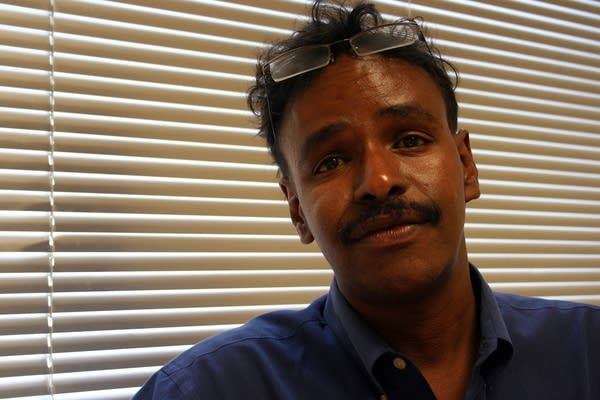Q & A: The social problems that drive Somali girls to prostitution
Go Deeper.
Create an account or log in to save stories.
Like this?
Thanks for liking this story! We have added it to a list of your favorite stories.

Federal agents have arrested 26 people in Minnesota and Tennessee for running an alleged prostitution ring that authorities said shuffled girls across state lines.
The wide-reaching sex-trafficking operation, controlled by Somali gangs, preyed on girls from the Twin Cities, including some who were 13 or younger, according to an indictment unsealed Monday in federal court. Authorities say three Minneapolis gangs operated the ring, which recruited pre-teen and teenage girls to have sex for cash, marijuana and other items.
For more perspective on Monday's indictment, MPR's Tom Crann talked with Abdirizak Bihi, the executive director of the Somali Education and Social Advocacy Center in Minneapolis. Bihi has worked with Somali-American girls who have been caught up in prostitution, and he said many of those girls face similar social situations.
Abdirizak Bihi: There are no educational programs ... or activities that engage these young girls. The social problems could be, one of them that we have seen in the past that young people always rebel. There are a lot of challenges with new families who come here, and when those challenges arise with young girls, they seem to be running away from home. There are no other organizations or resources where they can go or [find] shelter, and other people, unfortunately not so nice people, offer them that they should stay with them, and that is where they start to provide those young ladies to other men.
Turn Up Your Support
MPR News helps you turn down the noise and build shared understanding. Turn up your support for this public resource and keep trusted journalism accessible to all.
Tom Crann: When you talk about that issue of rebellion, teenage rebellion, we see this through the generations and in different communities, but is there something specifically in the family situations these young Somali women are facing? Is there more pressure than non-Somali teen girls?
Bihi: Yes. One of the problems that we see is that most of these young people who are being vulnerable to either recruitment of terror or have [an] agreement of prostitution are coming from households that do not have the father in the home. They most likely have cultural language barriers, and when such issues happen, the kids seem to be the only people who will be speaking English at home, and that the mom and the dad do not, or in this case, the mom, do not have access to resources to stop those problems with raising this young lady. And eventually, the crisis ends up that the kid or this young lady ... runs away from home [and they see] other women who seem to be welcoming to the home and eventually giving them up to other men.
Crann: When you heard of these arrests, did any of this surprise you, or is this wide enough spread, are you wide enough aware of it that it didn't surprise you at all?
Bihi: I'm not real surprised. I have been working with youth a long time. I know the challenges facing the youth. Eighty percent of those young men and women who are over 18 are employable, do not even have a part-time job, are not registered with any program. It's really a very dire situation with the youth at this time. I'm expecting the situation to get worse because of the lack of resources on the ground for youth, but the community is shocked. We have had several issues, including gun violence, recruitment for al-Shabab, and now we have recruitment for prostitution.
Crann: In September, you did an interview on this topic with one of our reporters, Laura Yuen, who has done coverage on the Somali community. And you told her the root of the problem is that we are not addressing the real issues of the community, and that tends to make the problem worse. Give us an idea of what you're talking about, the real issues of the community that need to be addressed here.
Bihi: The Somali-American community [does] not like anything negative. So we tend to ... shy away from the facts are happening, thinking about our reputation. We are a hard-working community. We tend to shy away [from] anything that might have a negative impact, and that process itself, when the leaders do that and do not address the issue, that itself makes the problem worse.
(Interview transcribed and edited by MPR reporter Madeleine Baran.)



